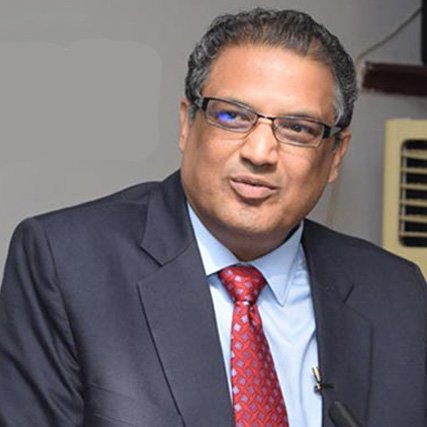The fight started with mutual differences between Khas Khan and Askari Khan, but the common Khan, the poor Khan and the innocent Khan are the ones who are being punished. Instability, uncertainty and hopelessness are causing losses to the common people, the poor and the innocent. Khas Khan is popular, this humble Khan has spoken dozens of times about his release, the establishment of a rigging commission and the end of baseless allegations against Khas Khan, but at the same time, this humble Khan has had strong disagreements with sit-ins, processions and violent politics and calls. Due to these repeated mistakes, the blood of the common people is shed and the state suffers from instability. Neither Khas Khan nor Aam Khan benefits from the instability of the state. When a new call is given, Askari Khan gets an opportunity to openly come forward about this mistake, thus the mistake is Khas Khan’s and the punishment is given to Aam Khan.
Thinking and calling for a civil disobedience movement is also a big mistake. First of all, a leader like Mahatma Gandhi had failed miserably in this movement, how will Khas Khan succeed? The national unity movement was launched in Pakistan, the People’s Party protested for many years. Noon was also on the streets. Neither Bhutto, nor Mufti Mahmood, nor Asghar Khan, nor Benazir Bhutto, nor Nawaz Sharif ever called for civil disobedience. Even though hundreds of deaths occurred during the national unity movement, there was no talk of civil disobedience. Quaid-e-Azam never thought of going to this extent. Khas Khan had tried this once before but failed. Civil disobedience means severing the people’s relationship with the government and the state, i.e. the people refuse to pay electricity, water and gas bills, do not cooperate with the police regarding law and order, boycott all state institutions, suppose this movement succeeds, what will happen? The machinery of the state and government will be destroyed and suppose this really happens, what will happen? Martial law will be imposed. As if the civil disobedience movement is a desperate attempt to impose martial law in the country?
Why is Khas Khan doing this? It would be foolish to deny Khas Khan’s popularity, but due to these aggressive measures, the possibility of Khan’s acceptance is disappearing. Unfortunately, the war between this popular democratic leader Khas Khan and the state Khan has turned into a war of hope and despair. Khas Khan is becoming associated with instability, rallies, processions, protest calls, vandalism and bloodshed, and General Khan is becoming associated with hope, stability, economic development, peace and order and improvement. Earlier, this order was reversed. Democratic people and leaders used to talk about economic development and our past rulers used to put obstacles in their way. If Khas Khan’s strategy continues, democracy will continue to disappear. If martial law is imposed, it is obvious that those who imposed martial law will be responsible. Will not Khas Khan, who imposed martial law, be responsible? This humble Khan has special sympathy for Khas Khan and the reason for this is that millions of Pakistanis are with him who sincerely want to improve Pakistan politically. Despite his special sympathy for Khas Khan, Ajiz Khan has had strong disagreements with his political strategy, and it is unfortunate that these repeated mistakes are weighing heavily on Pakistan, with political parties becoming irrelevant and the ruling elite becoming more powerful.
A respected economist contacted Ajiz Khan and said that all avenues for PTI are closed, what else should it do? Ajiz Khan humbly requested that it should do what the National Alliance did, the MRD did, and what political leaders did by forming alliances in every difficult time? Why was Mahmood Achakzai given a mandate and then withdrawn? Why haven’t they even held talks with like-minded political parties yet? There is no justification for these mistakes and these same mistakes are increasing the problems.
On one hand, there are threats of civil disobedience and on the other hand, the state is going to bring a huge construction package as soon as the IMF’s strictures and restrictions are eased, which they believe will lead to the fastest growth in the frozen economy. It has also been heard that the country’s biggest property tycoon has been settled and will return within a month or two, and thus the state’s entire focus will be on the economy and prosperity.
Ajiz Khan had the opportunity to sit with Nawabzada Nasrullah Khan for years. He was the founder and motivator of the most successful protest movements and alliances. He used to say that politics is about increasing your allies and reducing the allies of your opponent. He used to say that if even a grain of sand is included in my alliance, I do not hesitate that even that sand can be used to poke the opponent in the eye. This is the essence of experiences and facts, but the politics of PTI has been built on doubting its allies and strengthening its opponents. Doubting Ali Amin Gandapur, insulting Bushra Bibi, campaigning against Fawad Chaudhry, distrusting Barrister Gohar Ali, humiliating Salman Akram Raja and confronting its own leaders. Is PTI strengthening or weakening? Not ready to meet any other political party, no negotiations, no formula? A personal fight is not fought alone, a political fight is fought. The two-year politics of the PTI is only strengthening General Khan. By making fun of democrats, ridiculing other parties and abusing those who criticize them, they are pushing all these classes towards General Khan. If you keep your doors closed, insult criticism, do not respect anyone but throw them away, then not everyone will bow down to you, people are weak and timid, but when things go beyond the limit, they stand up, they turn from your pro-general to your anti-general Asim Munir and democratic judges turn into Qazi Faez Isa when you bring a reference. The battles of ego, the mistakes up and down, are already harming you, they are taking away the state and the common man!!
Note: This is the translation of his Urdu column published in Jang
 Colors
Colors  View Books
View Books 



